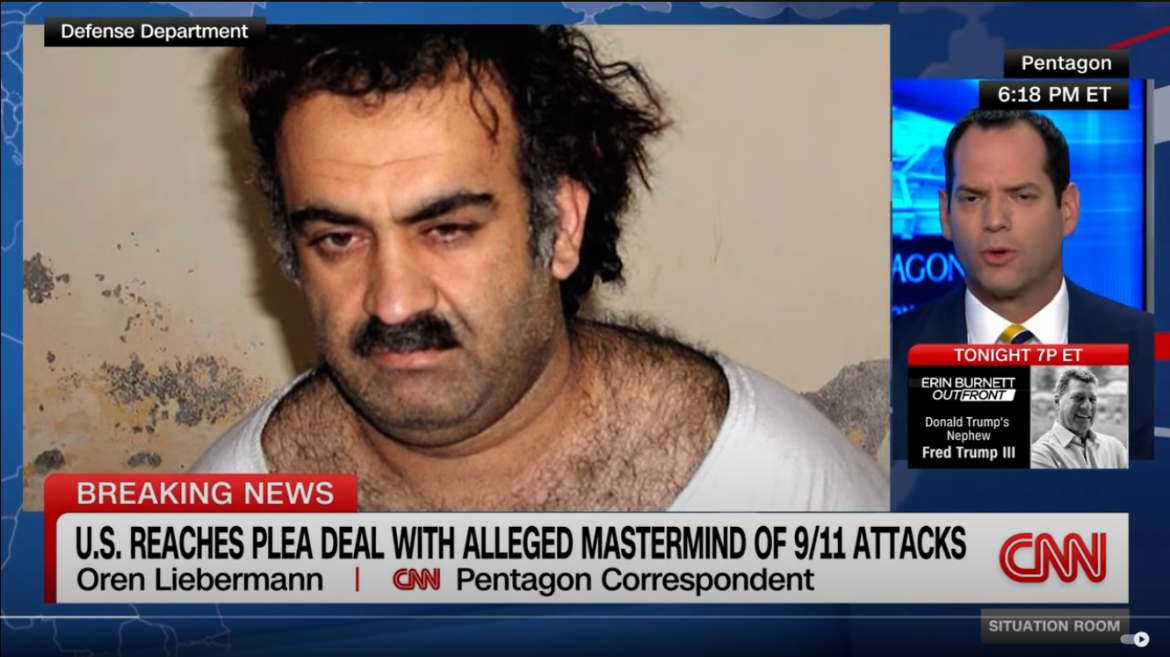The alleged mastermind behind the 9/11 terror attacks, Khalid Sheikh Mohammed, along with two other defendants, will avoid the death penalty through a plea deal with the U.S. government. On Wednesday, the Department of Defense announced that Mohammed, Walid bin Attash, and Mustafa al-Hawsawi have agreed to plead guilty to their charges and face sentencing on August 5th.
Khalid Sheikh Mohammed, often referred to as KSM, was captured in Pakistan in 2003 for his alleged role in orchestrating the September 11, 2001, attacks, which resulted in the deaths of nearly 3,000 people. The defendants are accused of providing training, money, and logistical support to the 19 terrorists who hijacked passenger planes, leading to one of the deadliest attacks on American soil.
According to the Defense Department, the plea deal means Mohammed, bin Attash, and al-Hawsawi will admit their involvement in the attacks but will not face the death penalty. The three suspects are currently held at the military detention facility in Guantanamo Bay, Cuba, and are expected to formally enter their pleas at the military commission as soon as next week.
The announcement of the plea deal has elicited strong reactions, particularly from first responders and families of the victims of the 9/11 attacks. Many expressed outrage that the alleged mastermind and his accomplices would avoid the death penalty, a fate they believe is deserved given the scale and impact of their alleged crimes.
CBS New York’s Derick Waller reported on the sentiments of New Yorkers, capturing the anger and disappointment of those who lived through the attacks and their aftermath. “This is a slap in the face to all of us who risked our lives and lost our loved ones,” said one first responder. The plea deal is seen by many as a controversial resolution to a case that has been mired in legal complexities for over two decades.
The plea deal marks a pivotal moment in the long-running legal saga surrounding the 9/11 attacks. Khalid Sheikh Mohammed’s capture in 2003 was a major milestone in the U.S. efforts to bring the perpetrators to justice. However, the subsequent legal proceedings have faced numerous challenges, including issues related to the treatment of detainees, the admissibility of evidence obtained through controversial interrogation techniques, and the broader implications for U.S. military and intelligence operations.
The decision to offer a plea deal underscores the complexities of pursuing capital punishment in such high-profile terrorism cases, where legal, ethical, and practical considerations often intersect. As the sentencing date approaches, the focus will likely shift to the implications of the plea deal for the broader fight against terrorism and the ongoing quest for justice for the victims of 9/11.



